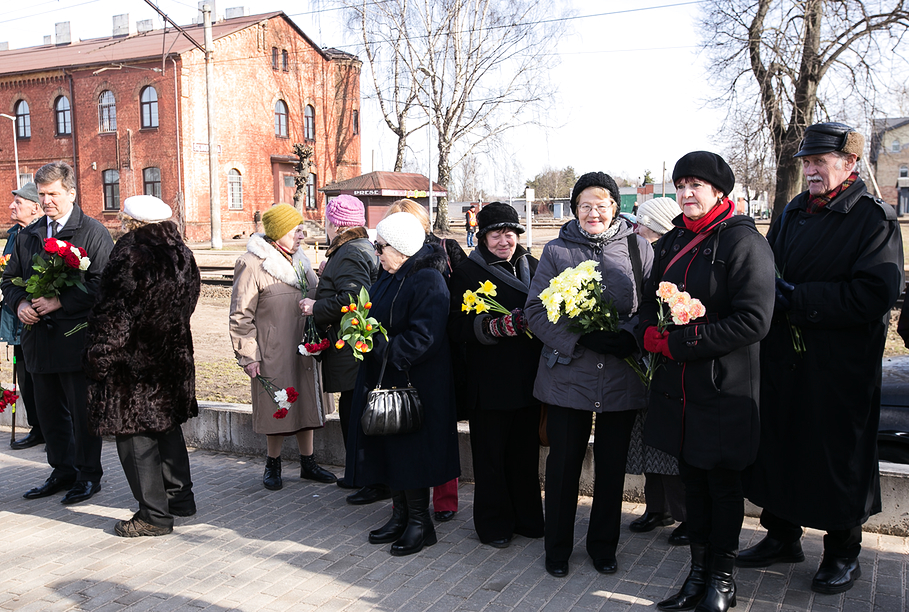A shocking 42,000 Latvians were hauled off in cattle trucks on March 25, 1949 alone and the date is now designated as Communist Genocide Memorial Day, with flowers laid at many of the rail points used for the deportations.
Flags are flown at half mast or with black ribbons attached.
Speaking at the Freedom Monument in central Riga, President Andris Berzins said:
"Today, commemorating the victims and honoring those who survived, we must remember that the greatest crime is to deny a person humanity... May this day and commemoration be a clear warning to all those who are still trying to occupy free and independent states."
It is essential that such events "will never happen again," Berzins said.
Berzins remarked that during the deportations, "human beings were not allowed to be human, and this is the most serious crime of all."
The Latvian leader emphasized that the entire world "must be told about the heinous crimes perpetrated by the Soviet Union, and films and personal accounts are the best tools."
Two mass deportations were carried out in Latvia: during the first Soviet occupation in 1941, and in 1949, during the second occupation, though smaller-scale deportations to the Gulag took place at other times as well.
As well as being crimes against humanity, the deportations deprived Latvia of its national elites and people with the closest bonds to the land. They created shortages in the labour force, which were made up by immigrants from other parts of the Soviet Union as part of the so-called 'Russification' program.
The deportations also created an entire generation of Latvians born in Siberia, who today are known as the 'Children of Siberia' and who are now among the most fervent defenders of their homeland, such as MEP Sandra Kalniete.
"Though not outright genocide, the deportations created conditions that set Latvia and its people on a course of losing its cultural heritage and eventually its national identity as well," says an official account of the deportations by the Museum of the Occupation of Latvia, with a full account of the Soviet Union's appalling actions available here.
Neighboring Estonia and Lithuania had similar crimes perpetrated against their populations by the Soviet Union.




























